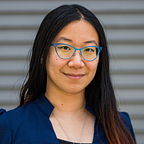The exciting industry of meat alternatives is moving us towards cleaner foods for planetary and human health. But no animal causes more methane emissions than the dairy cow. Cheese alternatives traditionally have missed the mark on taste and texture because they lack casein proteins found in milk. New Culture is creating a new way to produce the same casein proteins in bacteria to make delicious animal-free cheese.
I talked with New Culture’s CEO, Matt Gibson.
How did you become interested in cellular agriculture?
I first heard about cellular agriculture with the news of the world’s first lab grown beef patty in 2013 that was developed by Mark Post. I was already a vegan by that stage and was blown away by the concept of lab grown meat. I remember thinking how much of the world’s problems could be alleviated if this technology reaches scale, especially the most important matter of our time — climate change.
How did you decide to start the company and how does your team come together?
After seeing Mark Post’s patty, I wanted to find anyone in New Zealand that was doing something similar. I tried contacting a whole bunch of people including professors and business leaders to see if they knew of anyone working on this locally but I got absolutely no response. So I sat on the sidelines for a few years thinking that this would be a movement I’d likely miss out on. I continued watching the space grow with more companies arriving on the scene and I decided that rather than wait to find a cell ag company to join, I’d start one myself.
I had seen a lot of cell-ag companies working on meat but hardly anyone working on dairy. Being from New Zealand, where dairy is our biggest export, I’d not only seen how damaging this industry can be but also knew a lot about it. It seemed to me to be the logical choice to jump into an underdeveloped space I knew a bit about.
I remember speaking to some other company founders about how they found their co-founders. I was given the advice to go ‘full-on’ recruiter mode, buy LinkedIn premium and search for exactly the type of co-founder I was looking for. I reached out to a lot of people and after a lot of interviews and a few months I found Inja and Arie, my co-founders.
How does your technology work? What was the key insight?
Our first focus is cheese, we found out very early on that the key component of dairy cheese that gives it the traits that everyone loves are the casein proteins. This is actually why I believe plant based cheeses can never replace dairy cheese as they don’t have those casein proteins which are extraordinarily unique, only being found in mammalian milk and are extraordinarily important for cheesemaking.
As we obviously don’t want to source our casein proteins from animals, we are using what is known as recombinant protein technology to produce them. This works by instructing a microbe to produce our target protein through fermentation. We then combine this protein with plant based fats and sugars to make sustainable and ethical dairy cheese with no lactose and no cholesterol.
What lessons did you learn transitioning from science to entrepreneur at IndieBio?
I never really considered myself as just a scientist. When I went to university, I wanted to do both science and business. Wanting to pick just one to study, I figured it would be best to learn business by myself and I should study science. The act of deciding to do business by myself actually stopped me from continuing my science studies into the postgrad level. I had founded a company while studying which I went into full time after graduating with a BSc in microbiology and genetics.
In that sense, I don’t think I ever was one or the other with regards to a scientist or an entrepreneur. I like to think of myself as always being both. To me the most important aspects of science that I use in business is critical thinking.
How do you think your success as a company will change the cheese industry?
In short, it will make it more sustainable and more ethical. It will also make people consider the sustainability of the cheese they are currently eating, as cheese is the most unsustainable of all dairy products, which a lot of people are not aware of.
What milestones are in the near future?
We are currently raising a seed round which we hope to close very soon. After that we want to begin scaling up our cheese production and make our first 100g hand-made ball of recombinant mozzarella cheese.
Watch New Culture pitch on IndieBio Demo Day, Tuesday June 25th in San Francisco or via LiveStream. Register here!
